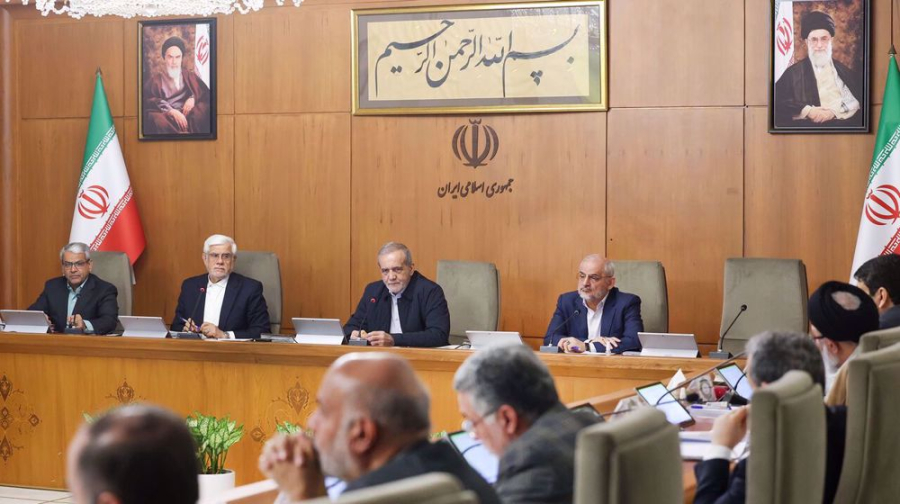Iranian President Masoud Pezeshkian says the Islamic Republic’s response to a letter from US President Donald Trump leaves open the possibility of indirect talks with Washington, stressing that the continuation of the negotiation process depends on the Americans' behavior.
Pezeshkian made the remarks during a cabinet session on Sunday, as he confirmed that Iran’s response to Trump’s letter has been delivered via the Sultanate of Oman.
“While Iran’s response rules out the possibility of direct talks between the two sides, it states that the path for indirect negotiations remains open,” Pazeshkian said.
He said, "As we have stated before, Iran has never closed the channels of indirect communication. In its response, Iran reaffirmed that it has never shied away from engaging in negotiations, but rather, it has just been the United States' repeated violations of agreements and commitments that have created problems on this path."
Pezeshkian further noted that the broken promises by the US have damaged trust, which must be restored, adding that “It’s the behavior of the Americans that will determine whether the negotiations can move forward.”
On March 7, Trump announced he had written to Iran to call for nuclear negotiations and threaten military action. The letter was delivered to Tehran on March 12 by UAE presidential adviser Anwar Gargash.
Leader of the Islamic Revolution Ayatollah Seyyed Ali Khamenei said on March 21 that US threats "will get them nowhere" and warned of reciprocal measures "if they do anything malign" against Iran.
Ayatollah Khamenei also dismissed Trump’s outreach for talks, which he said was an attempt to deceive global public opinion by portraying the United States as willing to negotiate while framing Iran as unwilling to engage.
On Thursday, Foreign Minister Abbas Araghchi said Iran’s official response to a letter from Trump has been sent through Oman.
Araghchi said the response was sent through a letter that elaborated Iran's viewpoints on the current situation and Trump’s letter.
The Trump administration recently restored the so-called maximum pressure policy, first introduced during Trump’s initial term in office in 2016.
Under this policy, Trump withdrew the United States from a landmark agreement on Iran's nuclear program in 2018 and reimposed harsh economic sanctions on Tehran.
Under the 2015 agreement between Tehran and world powers, Iran agreed to confidence-building restrictions on its nuclear activities in exchange for the lifting of economic sanctions.
Press TV’s website


















